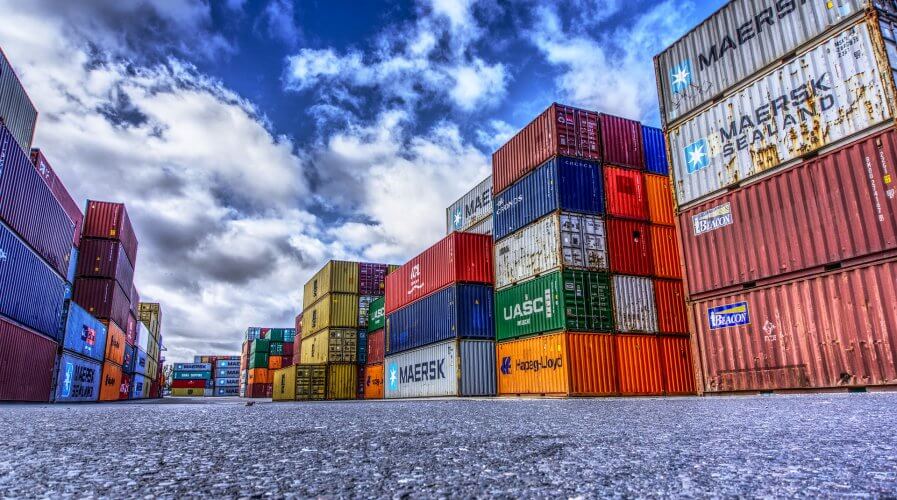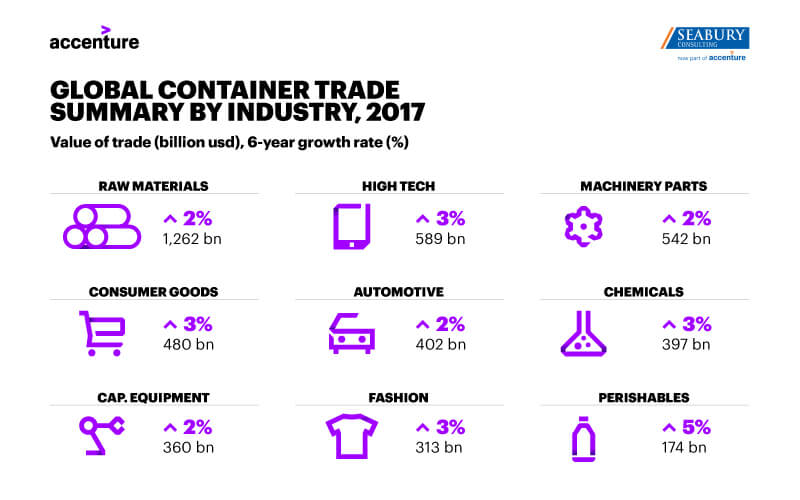
Blockchain can make ocean shipping so much easier | Source: Pixabay
Blockchains to revolutionize ocean shipping
WITH globalization, there’s more movement of goods from one part of the world to the other – much of which regular consumers don’t even see.
Fruits in the supermarket, for example, come from different parts of the world. And many of the electronics we buy are engineered in one country, manufactured in another, and sold in a third.
But all of that involves a lot of logistics – which in itself is a huge industry. And ocean shipping is one of the most common and preferred modes of transport – especially when it comes to automotive, retail, and consumer goods products.

Billions of dollars worth of trade will be impacted with blockchain in the picture | Source: Newsroom/Accenture
However, an international shipment of goods typically requires more than 20 different documents, many of which are often paper-based, to enable the goods to move from exporter to importer.
Across these documents, up to 70 percent of the data can be replicated – which means companies need to be vigilant to avoid fraud.
The document heavy approach limits data quality and real-time visibility and can also cause delays in settling payment for the goods.
To solve the problem, a consortium comprising AB InBev, Accenture, APL, Kuehne + Nagel and a European customs organization developed a blockchain solution that can eliminate the need for printed shipping documents and save the freight and logistics industry hundreds of millions of dollars annually.
“Blockchain is one of the most promising technologies in logistics. It has the potential to digitalize many of today’s paper-based processes and overcome the multitude of different interfaces,” said Martin Kolbe, Chief Information Officer, Kuehne + Nagel International AG.
The consortium’s solution doesn’t require documents to be exchanged physically or digitally but instead, uses blockchain technology to share and distribute the relevant data.
The new solution relies on the trust and security offered by blockchain to re-allocated information ownership, accountability, and risk among existing stakeholders in ocean shipping.
NEW INNOVATION: APL successfully tests #blockchain solution with industry stakeholders that can revolutionize ocean #shipping. Read More: https://t.co/TZ4NhRom57 #APLShipping #ShippingInnovation #DisruptiveTechnology pic.twitter.com/QN61AX9o3u
— APL (@APLShipping) March 15, 2018
According to a press release by Accenture, the solution offers several benefits:
- Speeds up documentation across all relevant parties
- Reduces the requirement for data entry by up to 80 percent
- Simplifies data amendments across the shipping process
- Streamlines the checks required for cargo
- Reduces the burden and risk of penalties for customs compliance levied on customers
The consortium, which represents typical stakeholders across an international shipment, collaborated to test 12 real shipments, with various destinations, each with different regulatory requirements.
The tests confirmed that blockchain can reduce operating costs and increase supply chain visibility.
“Our trials have proven the viability of a shipping process in which many documents can be replaced by secure and distributed data sharing with clear and defined ownership. This gives companies a significant opportunity to save time and money while improving their service to customers,” said Adriana Diener-Veinott, who leads Accenture’s Freight & Logistics industry practice.
READ MORE
- Data Strategies That Dictate Legacy Overhaul Methods for Established Banks
- Securing Data: A Guide to Navigating Australian Privacy Regulations
- Ethical Threads: Transforming Fashion with Trust and Transparency
- Top 5 Drivers Shaping IT Budgets This Financial Year
- Beyond Connectivity: How Wireless Site Surveys Enhance Tomorrow’s Business Network




